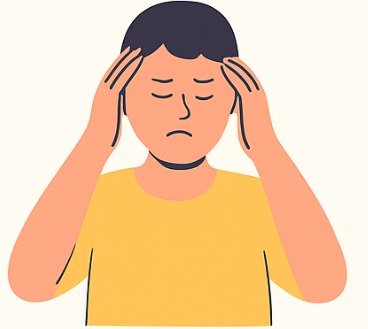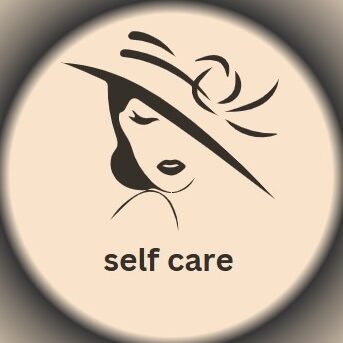👉 “Headache reasons and remedies are something almost everyone searches for at some point in life. From tension headaches caused by stress to severe migraines, understanding the causes of headaches is the first step toward finding effective relief. In this guide, we’ll explore the most common headache reasons and simple remedies you can try at home.”
The Main Types of Headaches (and Why They Happen)
1) Tension-Type Headache (the “stress” headache)
How it feels: A dull, aching pressure on both sides of the head—like a tight band around your forehead or the back of your head/neck.
Why it happens: Muscle tension in the scalp, jaw, and neck; long hours at a screen; stress, worries, poor posture, dehydration, or skipping meals.
What helps: Rest your eyes, gentle neck/shoulder stretching, hydration, a light snack, stress management (breathing exercises), and good posture.
2) Migraine (the “throbbing” one, often with nausea)
How it feels: Moderate to severe throbbing, usually on one side, worsened by movement. You may feel nauseous, vomit, or become extra sensitive to light, sound, or smells. Some people see flashes or zig-zag lines before the pain (called aura).
Why it happens: Brain sensitivity + triggers (hormonal changes, certain foods, irregular sleep, bright lights, strong smells, stress, weather shifts).
What helps: Rest in a dark, quiet room, hydrate, sleep, avoid personal triggers, and ask a clinician about migraine-specific treatments if attacks are frequent.
3) Cluster Headache (rare but very intense)
How it feels: Excruciating pain around one eye or temple, tearing/redness in that eye, blocked or runny nose on the same side. Comes in “clusters” for weeks, often at the same time each day Personal Self-Care.
Why it happens: Exact cause is unclear, but it involves the brain’s biological clock (hypothalamus).
What helps: This needs medical evaluation. Treatments can shorten attacks and prevent clusters.
4) Sinus Headache (often confused with migraine)
How it feels: Facial pressure around the cheeks, forehead, or bridge of the nose; worse when bending forward; may include nasal congestion or thick discharge.
Why it happens: Sinus inflammation from colds, allergies, or infection.
What helps: Saline rinses, steam inhalation, allergy management. True bacterial sinusitis sometimes needs antibiotics—get medical advice if symptoms are severe or last >10 days.
5) Medication-Overuse Headache (rebound headache)
How it feels: Daily or near-daily headaches that improve briefly with painkillers but return as the medicine wears off.
Why it happens: Frequent use of headache pills (even over-the-counter) can “teach” the brain to expect them.
What helps: Gradually reducing overused medicines with medical guidance, and switching to a prevention plan.
Everyday Triggers You Can Control
- Dehydration: Not drinking enough water makes the brain and blood vessels unhappy.
- Hunger/irregular meals: Drops in blood sugar can start a headache.
- Caffeine swings: Too much, too little, or sudden withdrawal can all trigger pain.
- Sleep issues: Too little, too much, or poor-quality sleep.
- Screens & posture: Eye strain and tight neck muscles from phones/laptops.
- Stress & anxiety: Tightens muscles and changes pain pathways.
- Hormonal shifts: Periods, pregnancy, perimenopause can affect migraines.
- Environment: Bright lights, loud noise, strong perfumes, heat, or weather changes.
- Foods/drinks (varies by person): Aged cheeses, processed meats, very salty foods, red wine, artificial sweeteners, MSG—only if you notice a pattern.
Quick Self-Check: What’s Likely Causing Mine?
- Band-like pressure + long screen time? Tension-type.
- Pulsing one-sided pain + nausea/light sensitivity? Migraine.
- Eye-area stabbing attacks at the same time daily? Cluster—see a doctor.
- Facial pressure + congestion that worsens when bending? Sinus-related.
- Headaches most days + frequent painkiller use? Possible medication-overuse.
(This is a guide, not a diagnosis. When in doubt, get medical advice.)

Smart Relief You Can Try at Home
- Hydrate: Sip water regularly. Aim for pale-yellow urine.
- Small meal or snack: Especially if you skipped meals.
- Caffeine, carefully: A small coffee or tea can help some headaches, but keep your total daily intake consistent.
- Rest your senses: 10–20 minutes in a dark, quiet room.
- Move and stretch: Relax your neck/shoulders; try a short walk.
- Cold or warm compress: Cold packs often help migraines; warmth can relax tight muscles in tension headaches.
- Gentle massage: Temples, jaw muscles, neck base.
- Over-the-counter pain relief: Paracetamol or ibuprofen can help occasional headaches. Avoid using them more than 2–3 days per week to prevent rebound headaches. (Not for everyone—check labels, avoid if allergic, pregnant, or if you have kidney/stomach/heart issues.)
Prevention: Build a Headache-Resistant Routine
- Regular sleep: Same bedtime/wake time, even on weekends.World Health Organization – Headaches
- Eat on time: Balanced meals, protein + complex carbs, and don’t skip breakfast.
- Keep a steady caffeine level: If you use caffeine, keep it consistent and avoid late evenings.
- Posture check: Screen at eye level, feet flat, back supported; use the 20-20-20 eye rule (every 20 minutes, look 20 feet away for 20 seconds).
- Daily movement: Even 20–30 minutes of light exercise helps.
- Stress tools: Deep breathing (inhale 4, hold 4, exhale 6), journaling, prayer/meditation, nature time.
- Trigger diary: Note what you ate, slept, felt, and did before a headache. Patterns = power.
A Simple 7-Day Headache Diary Template
Copy this into your notes app or journal:
- Date & time:
- Pain (0–10):
- Where/how it feels:
- Last meal & fluids:
- Sleep (hours/quality):
- Caffeine (amount/time):
- Stress level (0–10):
- Screen time/posture today:
- Weather change? (Y/N):
- What helped & how fast:
- Medicines taken (dose/time):
Review after a week to spot your personal triggers.
When a Headache Is an Emergency (Don’t Wait)
Seek urgent medical care if you have:
- A sudden, severe “worst ever” headache (thunderclap).
- Headache after a head injury.
- Headache with high fever, neck stiffness, rash, confusion, fainting, weakness, numbness, slurred speech, or vision loss.
- A new or different headache if you’re pregnant, over 50, or have cancer, HIV, or immune conditions.
- Headaches that are getting more frequent or don’t respond to usual remedies.
Final Word
Most headaches are linked to lifestyle triggers—hydration, sleep, stress, posture, and food patterns. Start with small changes, keep a diary, and use over-the-counter medicines only occasionally. If your headaches are severe, frequent, or unusual for you, see a healthcare professional to rule out underlying causes and discuss prevention options.
Disclaimer: This content is for education and does not replace professional medical advice.
Want me to adapt this for your blog’s tone (more friendly, SEO keywords, or with FAQs)? I can tailor it right away.



